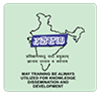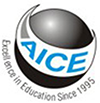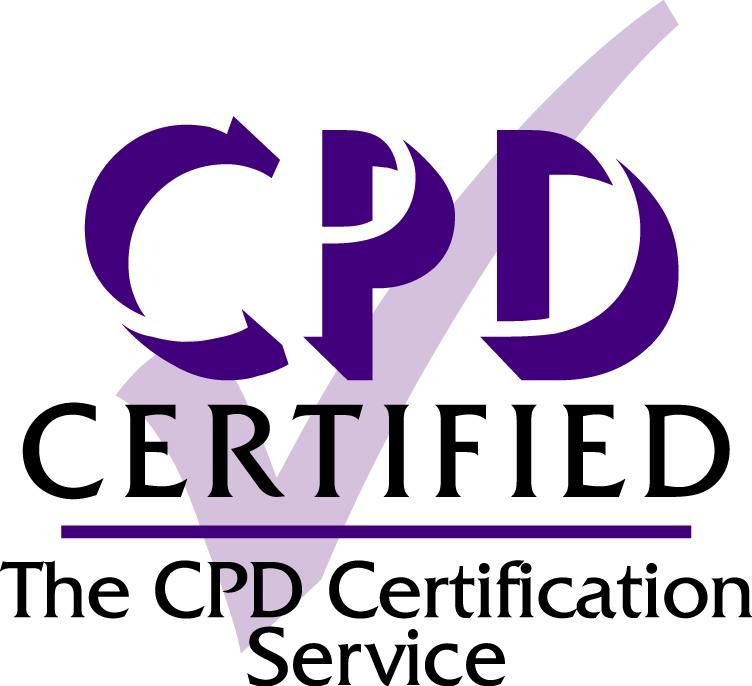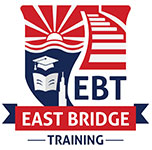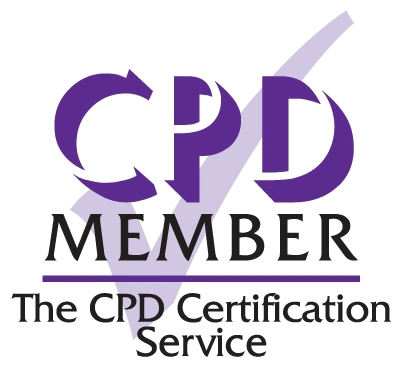Course Overview
Asian College of Teachers is providing an extensive range of Special Education courses for aspirants planning to make a foray into the field of Special Educational Needs. The courses have been divided into six different categories, each catering to/specialising in the different professional segments of specialised teaching and learning. Our special education courses cover a wide variety of areas relating to SEN and other special needs courses and come in 3 different levels - Certificate, Diploma and P G Diploma. The courses include:
Special Education
Special Education course is a complete course that comprises a detailed knowledge on the three main aspects of Special Education. Those are ADHD, Autism and Learning Disabilities, providing a detailed curriculum prepared by our experts at ACT, which are aimed to provide you with a strong knowledge base in these areas of SEN.
Autism
The course on Autism covers a broader aspect of autism and its allied disabilities, how to handle emotions and student tantrums, know the types of play-skill to foster among the learners and to guide the learners with better learning approaches as well as life-skill training approaches to help them prepare better for the life ahead.
ADHD
If you are willing to step into the world of teaching learners with ADHD, enrol in this course to get a comprehensive knowledge on ADHD, ways to identify it among learners who are affected by it and understanding the various support required by the learners at various stages and their effectiveness as well as their possible outcomes.
Learning Disabilities
This program will guide you to learn about the varied disabilities and identify the learners to help them with reading, writing and word-identification problems. You also learn to manage classrooms, learn the strategies and assessment techniques as well as get knowledge on other non-verbal disabilities like Dyslexia, Dysgraphia, and Dyscalculia.
In-class SEN
A 5-day classroom program, this training provides you with first-hand knowledge from our facilitators covering areas like supporting learners with different impairments and identifying learners with different challenges touching upon ADHD, Down’s Syndrome, Cerebral Palsy and Asperger’s Syndrome.
Live Online SEN Workshop
ACT’s 3 day live online workshop provides our students across the globe the opportunity to attend live online classes and interact with the facilitators and peers and collaborate in online activities with regards to SEN training. The live online workshop consists of live Q&A sessions, text chat and recording options along with the trending surveys and polls to help the candidates get the maximum benefit from the session.
*for all PG Diploma courses, candidates can pursue a CACHE endorsed online course – Recognising and Supporting Children with Special Needs at additional fees.
Duration and Fees
| Course Name | Duration | Eligibility | Price |
|---|---|---|---|
| Certificate in Special Education (ADHD, Autism and Learning Disabilities) | 4 months | 10+2 | 18000 INR |
| Diploma in Special Education (ADHD, Autism and Learning Disabilities) | 8 months | 10+2 | 35000 INR |
| PG Diploma in Special Education (ADHD, Autism and Learning Disabilities) | 12 months | Bachelor's Degree | 45,000 INR (ACT + CACHE/TQUK) |
| Certificate in Learning Disabilities | 4 months | 10+2 | 13000 INR |
| Diploma in Learning Disabilities | 8 months | 10+2 | 18000 INR |
| PG Diploma in Learning Disabilities | 12 months | Bachelor's Degree | 30,000 INR (ACT) |
| Certificate in Autism | 4 months | 10+2 | 13000 INR |
| Diploma in Autism | 8 months | 10+2 | 18000 INR |
| PG Diploma in Autism | 12 months | Bachelor's Degree | 30,000 INR (ACT) |
| Certificate in ADHD | 4 months | 10+2 | 13000 INR |
| Diploma in ADHD | 8 months | 10+2 | 18000 INR |
| PG Diploma in ADHD | 12 months | Bachelor's Degree | 30,000 INR (ACT) |
| SEN Live Online Workshops | Time |
|---|---|
| 26th February to 28th February 2021 | 10 am to 1 pm |
| SEN In-class: Kolkata | Time |
| 22nd March to 26th March 2021 | 9.30 am to 5.30 pm |
Curriculum
ADHD
- ADHD Phase 1: Understanding students
- ADHD Phase 2 : Diagnostic Process
- ADHD Phase 3 : Are they putting in the Effort?
- ADHD Phase 4 : ADHD and Brain Activation
- ADHD Phase 5 : ADHD and Activity Level
Autism
- AUTISM Phase 1 :Meet Autistic Students
- AUTISM Phase 2 :Understand the common characteristics of HFA/AS
- AUTISM Phase 3 :Discover how your students think
- AUTISM Phase 4 :Nurture students' social skills
- AUTISM Phase 5 :Encourage language reciprocity
Learning Disabilities
- LD Phase 1 :Understanding Learning Disabilities
- LD Phase 2 :Identifying Students with LDs
- LD Phase 3 :Making sense of the IEPs
- LD Phase 4 :Understanding Service Locations
- LD Phase 5 :Learning the Right Teaching Strategies
ADHD
- ADHD Phase 1 : Understanding students
- ADHD Phase 2 :Diagnostic Process
- ADHD Phase 3 :Are they putting in the Effort?
- ADHD Phase 4 :ADHD and Brain Activation
- ADHD Phase 5 :ADHD and Activity Level
- ADHD Phase 6 :Role of Parents
- ADHD Phase 7 :Clinical Diagnosis of ADHD
- ADHD Phase 8 :Down Syndrome Autism
Autism
- AUTISM Phase 1 :Meet Autistic Students
- AUTISM Phase 2 :Understand the common characteristics of HFA/AS
- AUTISM Phase 3 :Discover how your students think
- AUTISM Phase 4 :Nurture students' social skills
- AUTISM Phase 5 :Encourage language reciprocity
Learning Disabilities
- LD Phase 1 :Understanding Learning Disabilities
- LD Phase 2 :Identifying Students with LDs
- LD Phase 3 :Making sense of the IEPs
- LD Phase 4 :Understanding Service Locations
- LD Phase 5 :Learning the Right Teaching Strategies
ADHD
- ADHD Phase 1 :Understanding students
- ADHD Phase 2 :Diagnostic Process
- ADHD Phase 3 :Are they putting in the Effort?
- ADHD Phase 4 :ADHD and Brain Activation
- ADHD Phase 5 :ADHD and Activity Level
- ADHD Phase 6 :Role of Parents
- ADHD Phase 7 :Clinical Diagnosis of ADHD
- ADHD Phase 8 :Down Syndrome
- ADHD Phase 9 :Role of Teacher and Parents for Supporting Children with ADHD
Down Syndrome
- Down Syndrome – Definition and History
- Identifying Down Syndrome in Children
- Causes and Complications of Down Syndrome
- Teaching Children with Down Syndrome
- Inclusive Education for Children with Down Syndrome
Autism
- AUTISM Phase 1 :Meet Autistic Students
- AUTISM Phase 2 :Understand the common characteristics of HFA/AS
- AUTISM Phase 3 :Discover how your students think
- AUTISM Phase 4 :Nurture students' social skills
- AUTISM Phase 5 :Encourage language reciprocity
- AUTISM Phase 6 :Autism and Inclusive Education
- AUTISM Phase 7 :Transition from Adolescence to Adulthood
- AUTISM Phase 8 a :Asperger's Syndrome
- AUTISM Phase 8 b :Fragile X Syndrome
- AUTISM Phase 8 c :High Functioning Autism
- AUTISM Phase 9 :Types of Play Skills for Autistic Learners
Learning Disabilities
- LD Phase 1 :Understanding Learning Disabilities
- LD Phase 2 :Identifying Students with LDs
- LD Phase 3 :Making sense of the IEPs
- LD Phase 4 :Understanding Service Locations
- LD Phase 5 :Learning the Right Teaching Strategies
- LD Phase 6 : Learning Strategies and Assessment Techniques for Students with Learning Disabilities
- LD Phase 7 :Dyslexia
- LD Phase 8 :Dysgraphia and Dyscalculia
- LD Phase 9 : Language Processing Disorder
Phase 1 – Teaching and Counselling – Changing Role of the Teacher
- a) Teacher – the ‘role model’
- b) The Role of Psychology in Today’s Society
- c) Why the need for ‘counselling’ in Today’s Teachers
Phase 2 – Introduction to the Different Schools of Psychology
- a) Behavioural
- b) Cognitive
- c) Personality
Phase 3 – Introduction to Counselling Skills
- a) Listening & Communication
- b) Interview Technique & Questioning
- c) Ethics in Counselling
- a) Religious
- b) Ethnic & Racial
- c) Sexual
- a) Classical & Extended Family Structure
- b) Changing Family Structure in Contemporary Society
- a) Bullying
- b) Conduct Disorder
- c) Absenteeism & Substance Abuse
- d) Fears & Phobias
- a) Discipline
- b) Punishment
- a) Conflict Resolution
- b) Behavioural Modification
- c) Improving Relationships
- Chapter 1 Observation Chapter
- Chapter 2 Narration
- Chapter 3 Discussion
- Chapter 4 Explanation
- Chapter 5 Questioning
- Chapter 6 Demonstration
- Chapter 7 Application
- Chapter 8 Experiments
- Chapter 9 Discovery Learning
- Chapter 10 Feedback
- Chapter 11 Graphic Organisers and Visualisation
- Chapter 12 Grouping
- Chapter 13 Checklists
- Chapter 14 Product Descriptors and Rubrics
Phase 4 – Multicultural Counselling Approaches
Phase 5 – Role of Family in Counselling
Phase 6 – Classroom Behavioural Psychology
Phase 7 – Classroom Management
Phase 8 – Goal of Counselling
Certificate in Teaching:
Certificate
- Phase 1: Meet your Students with Autism
- Phase 2: Understand the Common Characteristics of HFA/AS
- Phase 3: Discover How Your Students Think
- Phase 4: Nurture Students & Social Skills
- Phase 5: Encourage Language Reciprocity
- Phase 6: Work with Sensory Sensitivities
- Phase 7: Nurture Special Interests
- Phase 8: Encourage Homework Completion
Diploma
- Phase 1: Meet your Students with Autism
- Phase 2: Understand the Common Characteristics of HFA/AS
- Phase 3: Discover How Your Students Think
- Phase 4: Nurture Students & Social Skills
- Phase 5: Encourage Language Reciprocity
- Phase 6: Work with Sensory Sensitivities
- Phase 7: Nurture Special Interests
- Phase 8: Encourage Homework Completion
- Phase 9: Counter Runaway Emotions and Meltdowns
- Phase 10: Redirect Violent Fixations
- Phase 11: Foster Attentiveness
- Phase 12: Plan for the Future
- Phase 13:
- Asperger Syndrome (AS)
- High Functioning Autism (HFA)
- Fragile X Syndrome (FXS)
- Phase 14:
- Landau-Kleffner Syndrome (LKS)
- Prader-Willi Syndrome (PWS)
- Rett Syndrome (RS)
- Phase 15:
- Tardive Dyskinesia (TD)
- Williams Syndrome (WS)
- Pathological Demand Avoidance (PDA)
- Phase 16: Autism and Inclusive Education
- Phase 17: Transition from Adolescence to Adulthood
PG Diploma
- Phase 1: Meet your Students with Autism
- Phase 2: Understand the Common Characteristics of HFA/AS
- Phase 3: Discover How Your Students Think
- Phase 4: Nurture Students & Social Skills
- Phase 5: Encourage Language Reciprocity
- Phase 6: Work with Sensory Sensitivities
- Phase 7: Nurture Special Interests
- Phase 8: Encourage Homework Completion
- Phase 9: Counter Runaway Emotions and Meltdowns
- Phase 10: Redirect Violent Fixations
- Phase 11: Foster Attentiveness
- Phase 12: Plan for the Future
- Phase 13:
- Asperger Syndrome (AS)
- High Functioning Autism (HFA)
- Fragile X Syndrome (FXS)
- Phase 14:
- Landau-Kleffner Syndrome (LKS )
- Prader-Willi Syndrome (PWS)
- Rett Syndrome (RS)
- Phase 15:
- Tardive Dyskinesia (TD)
- Williams Syndrome (WS)
- Pathological Demand Avoidance (PDA)
Certificate
- Phase 1: Understanding Students with ADHD
- Phase 2: The Diagnostic Process
- Phase 3: Are They Putting in the Effort?
- Phase 4: ADHD and Brain Activation
- Phase 5: ADHD and Activity Level
- Phase 6: Attention and ADHD
- Phase 7: The Emotional Impact of ADHD
- Phase 8: Memory
Diploma
- Phase 1: Understanding Students with ADHD
- Phase 2: The Diagnostic Process
- Phase 3: Are They Putting in the Effort?
- Phase 4: ADHD and Brain Activation
- Phase 5: ADHD and Activity Level
- Phase 6: Attention and ADHD
- Phase 7: The Emotional Impact of ADHD
- Phase 8: Memory
- Phase 9: Problem-Solving for Academic Performance
- Phase 10: Classroom Beliefs and Rules
- Phase 11: Preplanning and Facilitating an ADHD-Friendly Classroom
- Phase 12: Student Self-Reliance
- Phase 13: Previous Understanding about ADHD was a myth
- Phase 14: Role of Family
- Phase 15: Clinical Diagnosis of ADHD
Down Syndrome
- Definition and History
- Identifying Down Syndrome in Children
- Causes and Complications of Down Syndrome
- Teaching Children with Down Syndrome
- Inclusive Education for Children with Down Syndrome
PG Diploma Syllabus
- Phase 1: Understanding Students with ADHD
- Phase 2: The Diagnostic Process
- Phase 3: Are They Putting in the Effort?
- Phase 4: ADHD and Brain Activation
- Phase 5: ADHD and Activity Level
- Phase 6: Attention and ADHD
- Phase 7: The Emotional Impact of ADHD
- Phase 8: Memory
- Phase 9: Problem-Solving for Academic Performance
- Phase 10: Classroom Beliefs and Rules
- Phase 11: Preplanning and Facilitating an ADHD-Friendly Classroom
- Phase 12: Student Self-Reliance
- Phase 13: Previous Understanding about ADHD was a myth
- Phase 14: Role of Family
- Phase 15: Clinical Diagnosis of ADHD
- Phase 16: Role of Teacher and Parents
- Phase 17: Deafness
- Phase 18: Orthopaedic Impairment
- Phase 19: Intellectual Disabilities
- Phase 20: Multiple Disabilities
(Additional course: CACHE endorsed online course – Recognising and Supporting Children with Special Needs).
Certificate
- Phase 1: Understanding Learning Disabilities
- Phase 2: Identifying Students with LDs
- Phase 3: Making Sense of the IEP
- Phase 4: Understanding Service Locations
- Phase 5: Learning the Right Teaching Strategies
- Phase 6: Helping Students with Word Identification Problems
- Phase 7: Helping Students with Reading Comprehension Problems
- Phase 8: Helping Students with Written Expression Problems
Diploma
- Phase 1: Understanding Learning Disabilities
- Phase 2: Identifying Students with LDs
- Phase 3: Making Sense of the IEP
- Phase 4: Understanding Service Locations
- Phase 5: Learning the Right Teaching Strategies
- Phase 6: Helping Students with Word Identification Problems
- Phase 7: Helping Students with Reading Comprehension Problems
- Phase 8: Helping Students with Written Expression Problems
- Phase 9: Helping Students with Math Reasoning and Calculation Problems
- Phase 10: Modifying Your Classroom
- Phase 11: Managing Student Behaviour
- Phase 12: Linking Home and School
- Phase 13: Instructional Methods to help students with LD overcome challenges in an Inclusive Classroom
- Phase 14: Learning Strategies & Assessment Techniques for students with LD
- Phase 15:
- Visual and Auditory Processing Disorder
- Spatial Relation
- Visual Agnosia
- Visual Closure
- Visual Discrimination
- Phase 16: Non-Verbal Disability
- Phase 17:
- Specific Learning Disabilities:
- Dyslexia
- Phonemic Awareness
- Phonics
- Fluency
- Vocabulary
- Text Comprehension
- Phase 18:
- Dysgraphia
- Dyscalculia
PG Diploma
- Phase 1: Understanding Learning Disabilities
- Phase 2: Identifying Students with LDs
- Phase 3: Making Sense of the IEP
- Phase 4: Understanding Service Locations
- Phase 5: Learning the Right Teaching Strategies
- Phase 6: Helping Students with Word Identification Problems
- Phase 7: Helping Students with Reading Comprehension Problems
- Phase 8: Helping Students with Written Expression Problems
- Phase 9: Helping Students with Math Reasoning and Calculation Problems
- Phase10: Modifying Your Classroom
- Phase 11: Managing Student Behaviour
- Phase 12: Linking Home and School
- Phase 13: Instructional Methods to help students with LD overcome challenges in an Inclusive Classroom
- Phase 14: Learning Strategies & Assessment Techniques for students with LD
- Phase 15:
- Visual and Auditory Processing Disorder
- Spatial Relation
- Visual Agnosia
- Visual Closure
- Visual Discrimination
- Phase 16: Non-Verbal Disability
- Phase 17: Specific Learning Disabilities:
- Dyslexia
- Phonemic Awareness
- Phonics
- Fluency
- Vocabulary
- Text Comprehension
- Phase 18:
- Dysgraphia
- Dyscalculia
- Phase 19: Auditory Processing Disorder (APD)
- Phase 20: Language Processing Disorder
- Phase 21: Visual Perceptual/Visual Motor Deficit
- Phase 22: Dyspraxia
- Phase 23:
- Social and Emotional Development of Students with LD
- Social Skill Training
- Decision Making and Problem-Solving Skill
(Additional course: CACHE endorsed online course – Recognising and Supporting Children with Special Needs).
DAY 1
- 1. Introduction to special education
- 2. Code of practice in special education
- 3. Identifying and supporting learners with special education needs
- 4. Supporting learners with impairments:
- auditory and visual
- mental ‘retardation’/slowness
DAY 2
- 5. Identifying various types of learning challenges
- 6. Creating Individual Education Plans
- 7. Helping learners with reading comprehension
- 8. Helping learners with mathematical reasoning
DAY 3
- 9. Managing behaviours
- 10. ADHD
- 11. Down’s Syndrome
- 12. Cerebral Palsy
- 13. Asperger’s Syndrome
DAY 4
- 14. *Peer teach practice
- 15. Review of peer teach
DAY 5
- 16. Legal rights of SEN students
- 17. Reflections on the SEN course
*Course includes peer teach practice
Topic: Supporting Diverse Learners in Inclusive Classrooms
DAY 1
- The Typical Classroom
- Understanding & Identifying diversity in classrooms
- Understanding & Fostering inclusiveness
- Glimpses of most common SEN learners (Dyslexia, Dyscalculia, Dysgraphia, ID, ADHD, ADD, ASD, Impairments, EBD)
- Quick Overview – Giftedness
DAY 2
- Differentiation* & the significance of IEP
- Instructional Strategies that address diverse learner needs
- Promoting “The 4Cs” to optimize achievement of learning outcomes for SEN learners
DAY 3
- Incorporating educational technology and adaptive learning tools
- Managing behaviour in inclusive classrooms
- Rights of SEN learners
ACT Admission and Support
- ACT's admission process is quite user friendly
- Option to opt for online payment methods
- Any form of payment can be availed (by using debit/credit card or by depositing cash, cheque or DD in ACT's bank account)
- Our Admission Department will contact you via mail or over phone
- Candidates can learn at their own pace
- Your queries and doubts will be cleared
Career Opportunities
After completing our courses, get the opportunity to become an accomplished professional as:
- Class teacher in an inclusive classroom
- Assistant teacher in an inclusive classroom
- Shadow teacher
- School counsellor as SENCO
- Budding entrepreneur
After successfully completing any of the courses on Special Education, many new and exciting doors of opportunities will open in your professional teaching career. Due to the increased awareness and timely diagnosis of children, the prospects and opportunities for qualified Special Education Needs Teachers are huge and will remain favourable for the coming decades. Therefore, aspirants who are part of inclusive classrooms and passionate about helping learners with special needs can complete any of our courses may well expect to get employed in various positions that will enable them to work with the SEN learners who suffer from disabilities like ADHD, Autism,Learning Disabilities etc. anywhere around the world. The qualifications and certificates are sure to benefit those who have opened or are willing to open day-care facilities or crèche. Since this course is internationally recognized by noted organizations, it will be helpful for those looking for employment opportunities across the globe and help you in realizing your dream of teaching abroad too!
Certification & Accreditation
- Candidates receive globally accepted certificate from Asian College of Teachers
- Courses at Asian College of Teachers are recognized by NASET andIASE*
- Courses at Asian College of Teachers are mostly endorsed by CACHE, UK
- For CACHE endorsed courses, separate CACHE endorsed certificates will be provided to the candidates
- * ACT Special Education courses are NASET recognized which is the only national membership organization dedicated solely to meet the needs of special education teachers and those preparing to venture into this field .
- ACT is also an institutional member of International Association of Special Education (IASE) that promotes awareness and understanding of SEN individuals.
- UK based CACHE also helps our candidates get a global recognition that most employers nowadays give importance to.
- These memberships and recognitions do provide our courses with an extra edge, helping you with better opportunities.








